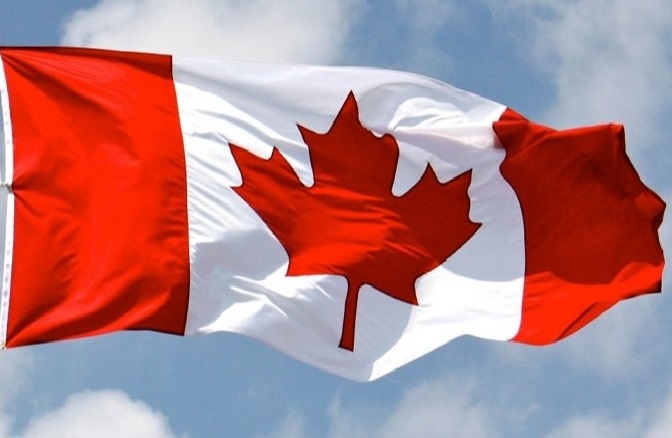Summary of Recent Changes to the International Student Program
The international student program in Canada has been the subject of a lot of media attention over the last year because a lot has changed. Foreign nationals looking to study in Canada must now show that they have more funds available to support themselves and their family members during their studies in Canada. Due to concerns about fake letters of acceptance, Immigration, Refugees and Citizenship Canada (IRCC) now requires Designated Learning Institutions to verify the letters of acceptance submitted by study permit applicants. The biggest change is the cap on the number of study permit applications that IRCC will approve this year and in coming years.
While these changes and more are discussed below, this article does not discuss recent changes to the Post Graduation Work Permit program.
Letter of Acceptance Verification
Individuals applying for a study permit must ordinarily submit with their application “written documentation from their designated learning institution where they intend to study that states that they have been accepted to study there,” otherwise known as a Letter of Acceptance.
In 2023, Canada Border Services Agency started the process of removing a number of international students from Canada because they had applied for their study permits with letters of acceptance that they did not know were fake.
In response, the Minister of IRCC announced that starting December 1, 2023, post-secondary learning institutions are now “required to confirm every applicant’s letter of acceptance directly with IRCC” in an effort to ensure that every fraudulent letter of acceptance is identified soon after it is submitted. Instructions on how letters of acceptance are validated by Designated Learning Institutions are now available.
Update to Minimum Funds Requirement
Individuals applying for a study permit must ordinarily demonstrate that they have enough money to pay their tuition fees, support themselves and any accompanying family members during their studies in Canada, and to leave Canada at the end of their stay. For many years, IRCC specified that a single study permit applicant, with no dependents, outside of Quebec, needed to show that they had enough money to cover the costs of their tuition for the first year of their studies plus $10,000, called the “cost-of-living” requirement.
As of January 1, 2024, a single applicant will be required to show that they have enough money to cover the costs of their tuition for the first year plus $20,635, and the amount increases according to the number of accompanying family members. This change applies to new study permit applications received on or after January 1, 2024.
Cap on the number of approved study permit applications
In January 2024, the Minister of IRCC announced a national cap on the number of overall study permit applications that will be approved on a yearly basis and the target for 2024 is 485,000.
Not all study permit applications are subject to the cap. Individuals looking to study in Canada at the primary and secondary school levels are not subject to the cap. Individuals looking to study in Canada at the master’s or doctoral level are also exempt from the cap, as are international students already in Canada who are looking to extend their study permits.
Of this target, 97,000 are targeted to be approved study permit extension applications, and 140,000 are targeted to be study permit applications for primary and secondary school students, master’s or doctoral degree students, leaving 292,000 study permit approvals for college and undergraduate students. The cap is also allocated based on the population share of each province and territory and as a result, this target represents a considerably higher overall reduction in the number of study permits approved for some provinces and territories than others.
Allocation for Ontario
For 2024, Ontario has been allocated 141,000 approved study permit applications that are subject to the cap. In March 2024, Ontario announced that it would allocate 96 percent of its allotment of approved study permit applications to publicly funded universities and colleges, with the remaining four percent allocated to language schools, private universities and other institutions, but not career colleges. The Ontario government is further prioritizing programs in high-demand areas, including skilled trades, health human resources, STEM, hospitality and childcare, as well as French-language enrolment.
Provincial/Territorial Attestation Letter
Study permit applicants who are subject to the cap are now required to provide a Provincial/Territorial Attestation Letter with their application, which is provided by the school to which they have been accepted and intend to attend.
Upcoming Changes to Off-Campus Work
Many, but not all international students with a valid study permit can work in Canada off campus without a work permit. However, off campus work is limited to no more than 20 hours per week during a regular academic session and full-time during a regularly scheduled break. On April 29, 2024, the Minister of IRCC announced that IRCC intends to increase the number of hours that eligible international students can work off campus from no more than 20 hours per week during a regular academic session to no more than 24 hours per week. This change is intended to occur in the fall of 2024, so stay tuned.
The above summary of changes is not legal advice. If you have questions about how these changes affect you, you may want to speak with a lawyer.
Immigrant Women Services Ottawa
219 Argyle Avenue, Suite 400
Ottawa, Ontario
K2P 2H4
Tel: 613-729-3145
Fax: 613-729-9308




 Abigail Williams - Treasurer
Abigail Williams - Treasurer Maria Choque - Member
Maria Choque - Member Hosai Qasmi - Member
Hosai Qasmi - Member Georgette Morris - Member at large
Georgette Morris - Member at large Veronica Dingile Mbofana - Member
Veronica Dingile Mbofana - Member


